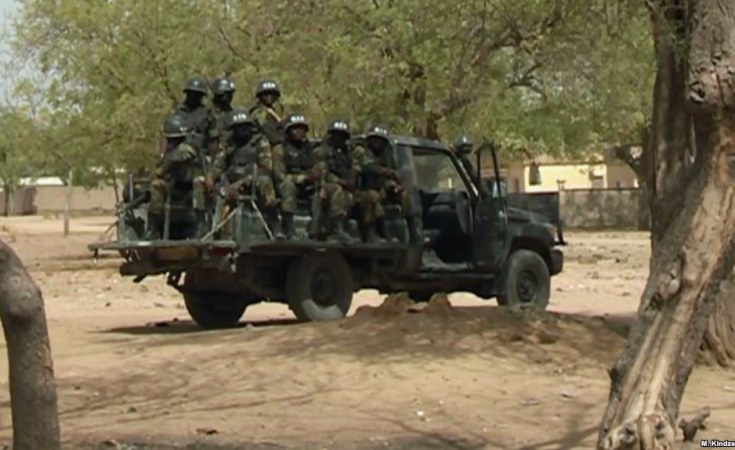Geneva — Boko Haram is wreaking havoc in Cameroon as well as Nigeria and other countries in the Sahel region and its attacks are going mostly unnoticed by a world focused on the novel coronavirus pandemic.
The UN Refugee Agency (UNHCR) has strongly condemned an unprovoked and brutal attack on a site hosting 800 internally displaced people near the village of Nguetchewe in northern Cameroon. At least 18 people were killed, and more than 11 injured in the early hours of August 2. In a separate statement issued in New York, the United Nations Children's Fund (Unicef) said preliminary reports indicated that 10 children were among those killed and five were injured.
The assailants threw an explosive device, believed to be a grenade, into the makeshift camp while people were sleeping.
"This attack follows a significant rise in violent incidents in Cameroon's Far-North Region in July, including looting and kidnapping by Boko Haram and other armed groups active in the region," UNHCR spokesperson Babar Baloch told journalists at an August 4 online briefing by the UN in Geneva.
Boko Haram initially operated from Nigeria, but more recently has mounted attacks in Cameroon, Chad, and Niger. It is a jihadist organization with a splinter group, the ISIS-aligned Islamic State West African Province (ISWAP). It uses suicide bombers and more conventional attacks that stir violence and destruction in Nigeria's northeast and the surrounding Sahel region.
Nigeria declared Boko Haram a terrorist organization in 2013, and several months later, the U.S. State Department followed.
Cameroon's Far North region lies between Nigeria's Borno and Adamawa states and Lake Chad. It currently hosts 321,886 internally displaced Cameroonians and 115,000 Nigerian refugees, Baloch explained.
Some 1,500 people, including terrified residents of the hosting village, have fled to the nearby town of Mozogo for safety. Some of the wounded were evacuated to Mokolo district hospital, an hour's drive from Nguetchewe.
Emergency mission
UNHCR deployed an emergency mission to assess the situation and evaluate the protection and health needs of those affected.
"Local communities in this impoverished area are often the first responders to those fleeing growing insecurity and violence in the area covering Lake Chad and north-east Nigeria," said Baloch. "They are sometimes related, and they share with them the few resources they have."
Against the growing insecurity, UNHCR anticipates that enhanced community protection, shelter, water, and sanitation will be needed as the country responds to the Covid-19 pandemic.
"The incident is also a sad reminder of the intensity and brutality of the violence in the wider the Lake Chad Basin region. It has forced more than three million people to flee: 2,7m are internally displaced in Northeast Nigeria, Cameroon, Chad and Niger, while 292,682 Nigerian refugees fled into neighbouring countries," said the UNHCR spokesman.
He added: "The incident is also a sad reminder of the intensity and brutality of the violence in the wider the Lake Chad Basin region that has forced more than three million people to flee."
A total of 2.7 million people are internally displaced in northeast Nigeria, Cameroon, Chad, and Niger, while 292,682 Nigerian refugees have fled into neighbouring countries.
The UNHCR said that Cameroon reports that since January this year, it has recorded 87 Boko Haram attacks on its northern border with Nigeria. Twenty-two of them were in the northern district of Mozogo alone. Violent attacks have cost the lives of 30,000 people in Nigeria, Cameroon, Niger, and Chad, Baloch said.


